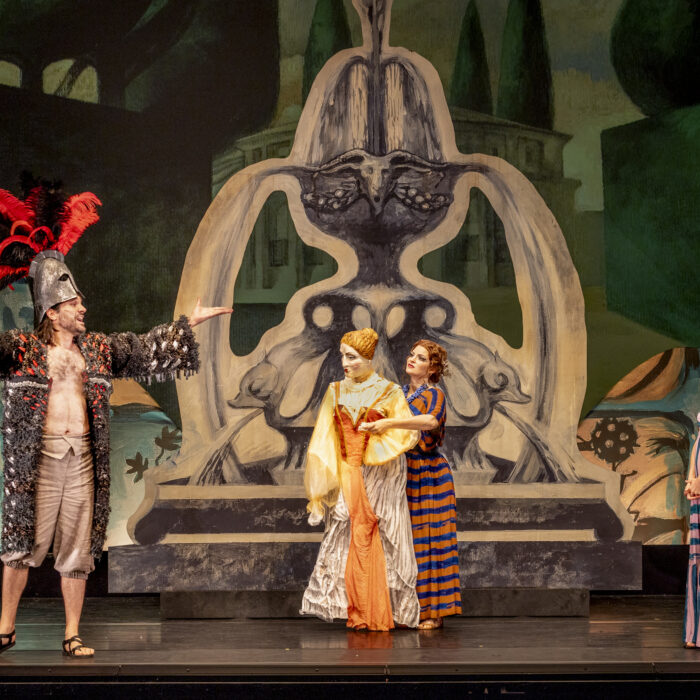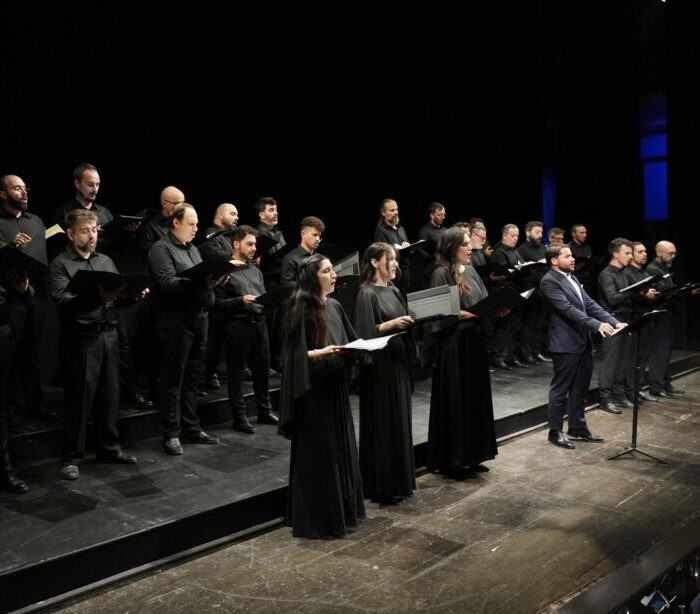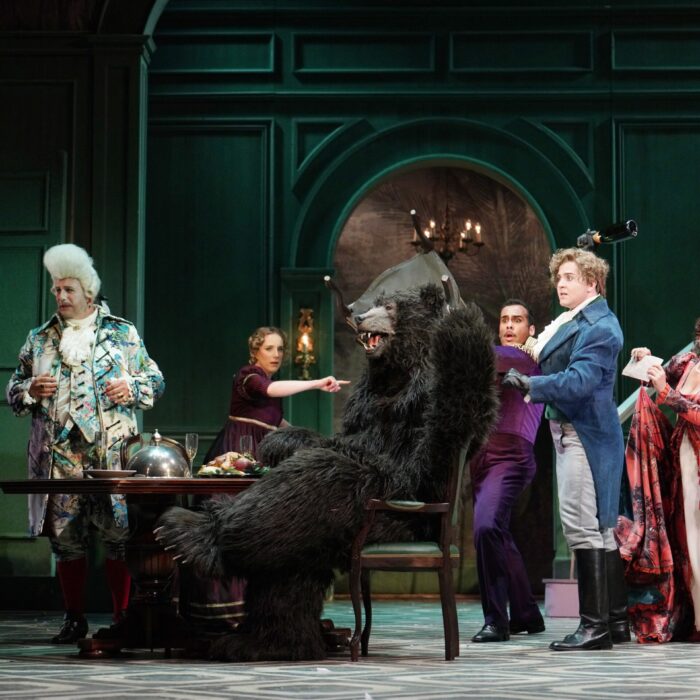
IN Series Opera 2025 Review: The Alcestiad
American Premiere of Louise Talma’s ‘The Alcestiad’ (Act Three) With Text by Thornton Wilder After His Play ‘A Life in the Sun’
By Arnold Saltzman
IN Series Opera, a regional opera company based in Washington, DC has presented many remarkable works this season. Almost all the works have represented new operas or new versions of opera in contemporary settings. I have been to the downtown locations of the company near Arena Theater, the Edlavitch DCJCC, the Rev. Martin Luther King Jr. Library and the Harold and Sylvia Greenberg Theater part of American University. Somehow, no matter the performance space, this inventive company makes every space their own. Much credit is due to the Artistic Director, Timothy Nelson.
Maestro Nelson was named Artistic Director in 2018. He has previously served other companies, most importantly he was the Artistic Director for the Netherlands Opera Studio and the Nieuwe Stemmen program of the Rotterdam Operadagen. His resume is very impressive, and his talent and energy continue to amaze us and are appreciated by local audiences. It is only once every few decades that one finds such an articulate and committed Artistic Director.
The program at the beautiful concert space of the Rev. Dr. Martin Luther King, Jr. Library, in downtown DC, had many special touches adding to the enjoyment of the program, “The Alcestiad” (Act Three). First, the introduction which took up a good part of the program, consisted of two fine actor/singers (Marvin Wayne Allen II, and Shana Oshiro) reading the letters of Louise Talma and Thornton Wilder, while Timothy Nelson was narrator, giving us insight into their creative process, their doubts and encouragement, which was so necessary in order to stage this work in Frankfurt, Germany in 1962. This was a reminder that Louise Talma shattered a glass ceiling by being the first woman composer of an opera to be presented by a European Opera House. Accordingly, it received a 19 minute ovation at the premiere, yet suffered from the critical reviews of later performances.
“The Alcestiad” (Act Three) was sung by an outstanding cast accompanied by Joy Schreier who was totally committed to the Serial Music Score. While it was never boring or lacking direction, her propulsive playing made an important difference in keeping attention on the dramatic elements.
Rob McGinness as Death/King Agis performed with stentorian clarity and dignity, including during the use of a special mask enabling characters to change roles.
Elizabeth Mondragon sang with beautiful tone, emotion, and consistent dramatic presence. This impressed not only her presentation, but helped us in accepting the atonal nature of her music in which she was most effective.
Apollo/Epimenes was sung by tenor Brian Arreola, who has a fine tenor voice, dramatic timing, and did the best anyone could hope for given the disruptive singing line he had to work with. He did very well, and made an easy transition from one character to the next.
Joseph Haughton, who played the Watchman, demonstrated a good tenor resonance and musicality.
Given that the brilliant pianist Joy Schreier was such an important part of this work, at times the voices were covered by the sound of the open piano, making the text less understandable for the listener. I assume that is part of the writing, and could be addressed. For me, part of this excellent performance is that the orchestrated version may offer a totally different impression of this work, and it could be looked at for allowing the text to be understood better. What I did miss was any musical analysis of the opera, and how it was fulfilled. For me, not a fan of atonal writing, since I feel it is too constricted and limited, still I had a delightful time and was pleased with the courageous offering, in a musically conservative DC community.



